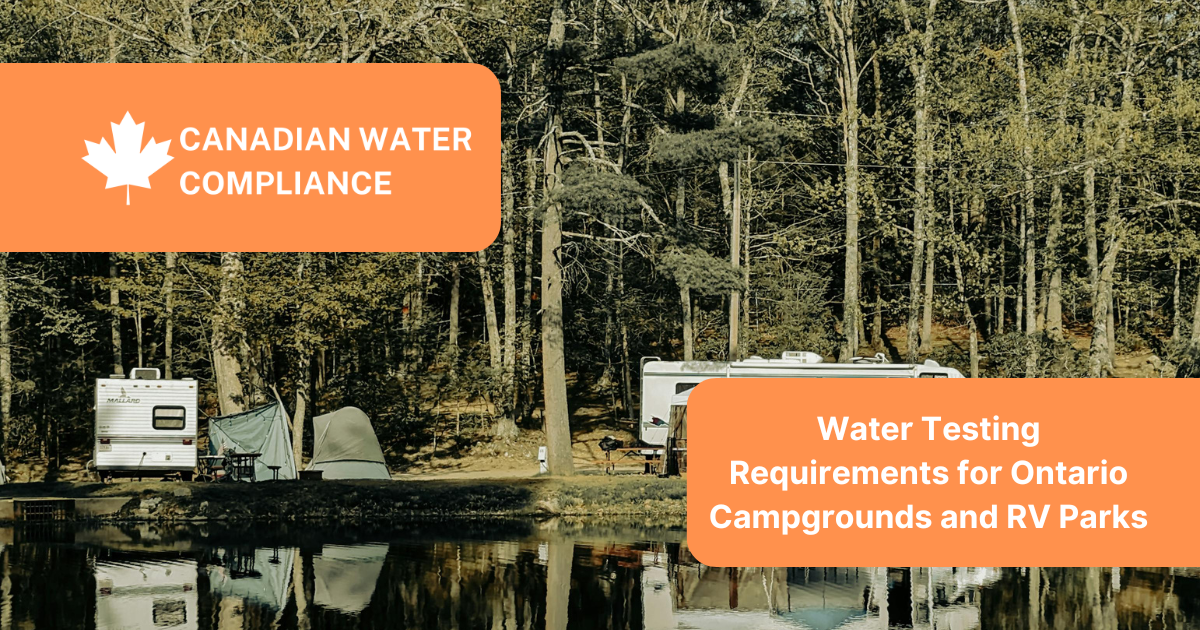
Written By: Canadian Water Compliance | On
In Ontario, seasonal campgrounds and RV parks are more than just vacation destinations—they're classified as small drinking water systems when they provide water to the public. That means they’re legally required to follow strict water testing regulations outlined by the Ontario Ministry of Health and O. Reg. 319/08 under the Safe Drinking Water Act.
Whether you run a family campground or a large RV resort, understanding your water safety responsibilities is crucial. Here’s what operators in Ontario need to know to stay compliant and ensure safe water for guests all season long.
If your campground or RV park provides water from a private source (such as a well, lake, or river) to guests, staff, or the public, and you're not connected to a municipal water supply, you're considered a Small Drinking Water System (SDWS) under provincial law. These include:
Campgrounds with water taps, washrooms, showers, or food services
RV parks with shared hookups
Seasonal resorts or lodges not connected to city water
Under O. Reg. 319/08, SDWS operators must test water regularly, document all results, and ensure corrective actions are taken when contamination is found.
Testing requirements for seasonal operations depend on several factors, including water source and system classification. However, minimum baseline testing includes:
E. coli and Total Coliforms: Required every two weeks while in operation
Nitrates and Nitrites: Typically tested annually
Additional parameters (e.g., chlorine residual, turbidity, sodium): may be required depending on risk assessment
Each SDWS must undergo a Site-Specific Risk Assessment (SSRA) by a Public Health Inspector, which determines the exact testing and monitoring schedule. Failure to complete or follow the SSRA plan can result in fines or closure.
Ontario requires campground and RV park operators to:
Notify the local Public Health Unit before seasonal operation begins
Flush and disinfect the entire water system
Conduct opening-day microbiological sampling (E. coli and coliforms)
Keep detailed records of disinfection and flushing procedures
This start-up testing is mandatory and must be completed before you open your site to the public.
If your test results exceed acceptable limits for bacteria or chemicals:
You’ll receive a Boil Water Advisory (BWA) from the local Public Health Unit
You must post signage and notify users
Corrective action must be taken—often including system disinfection, re-sampling, or upgrades
The advisory remains until clean water results are confirmed
Ignoring advisories or failing to act can result in shutdowns, penalties, or liability in the event of guest illness.
We make seasonal water safety simple by offering:
Site-specific compliance packages tailored to your campground or RV park
Certified sampling for bacteria and chemical parameters
Coordination with Public Health Units for inspections and reporting
Emergency testing support and treatment consultations
We help campground and RV park operators across Ontario meet regulatory requirements efficiently—so you can focus on running a safe, enjoyable site for your guests.